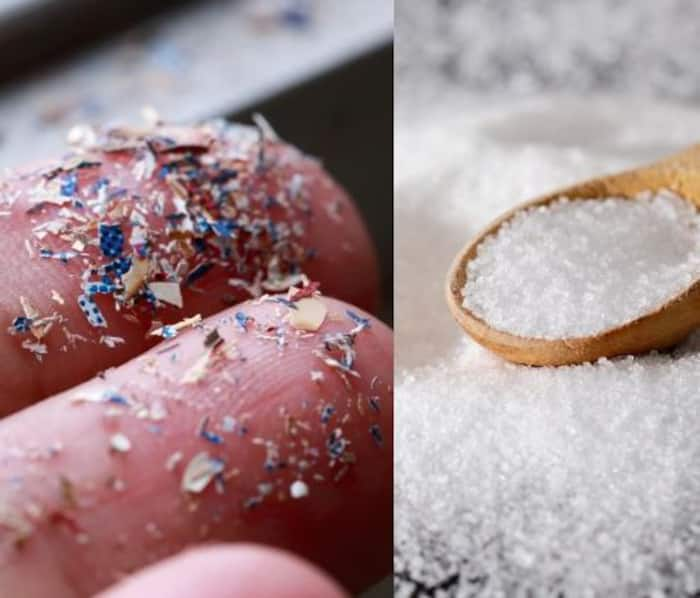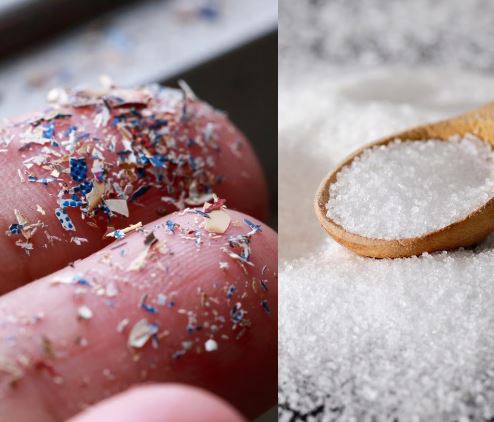According to recent research, Microplastics can harm your lungs, heart & reproductive system, check how it impacts your health.

All Indian salt and sugar brands, whether big or small, packaged or unpackaged, contain microplastics, according to a study published on Tuesday.
The study, titled “Microplastics in Salt and Sugar” and conducted by the environmental research organisation Toxics Link, tested 10 types of salt including table salt, rock salt, sea salt and local raw salt and they also purchased five types of sugar from both online and local markets.
Size Of Microplastics In Salt & Sugar
The study revealed that there is a presence of microplastics in all salt and sugar samples, in various forms, including fibre, pellets, films and fragments. The size of these microplastics ranged from 0.1 mm to 5 mm.
The concentration of microplastics in the salt samples ranged from 6.71 to 89.15 pieces per kilogramme of dry weight, the report said.
In sugar samples, the concentration of microplastics ranged from 11.85 to 68.25 pieces per kilogramme, with the highest concentration found in non-organic sugar.
The highest levels of microplastics were found in iodised salt, in the form of multi-coloured thin fibre and films.
Iodised salt had the highest concentration of microplastics (89.15 pieces per kilogramme) while organic rock salt had the lowest (6.70 pieces per kilogramme), according to the study.
How Microplastics Impact On Your Health?
Earlier studies found that the average Indian consumes 10.98 grams of salt and around 10 spoons of sugar every day. It is much higher than the World Health Organization’s recommended limits. Microplastics harm both health and the environment. These tiny plastic particles can enter the human body through food, water and air.
Research has found microplastics in human organs such as the lungs, heart, and even in breast milk and unborn babies. The results of cellular and animal experiments have shown that microplastics can affect various systems in the human body, like the digestive, reproductive, and immune systems.
Physical irritation to the gastrointestinal tract can cause inflammation, resulting in various gastrointestinal symptoms. Microplastics may also cause changes in the intestinal microbiome and create imbalance between beneficial and harmful bacteria, which can lead to abdominal pain, bloating, and changes in bowel habits.
‘Concerning & Calls For Urgent Research’ Says Toxics Link
Toxics Link founder-director Ravi Agarwal said, “The objective of our study was to contribute to the existing scientific database on microplastics so that the global plastic treaty can address this issue in a concrete and focused manner.”
“We also aim to trigger policy action and attract researchers’ attention to potential technological interventions that could reduce exposure risks to microplastics.”
Toxics Link associate director Satish Sinha added, “Our study’s finding of substantial amounts of microplastics in all salt and sugar samples is concerning and calls for urgent, comprehensive research into the long-term health impacts of microplastics on human health.”
(With Inputs From PTI)

